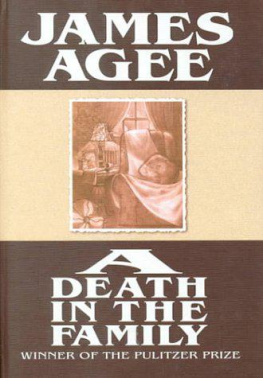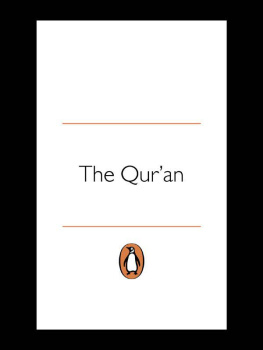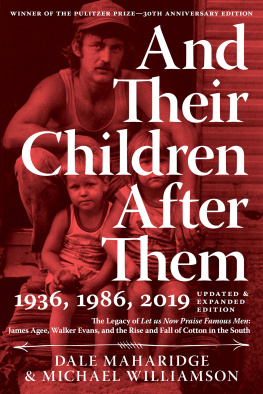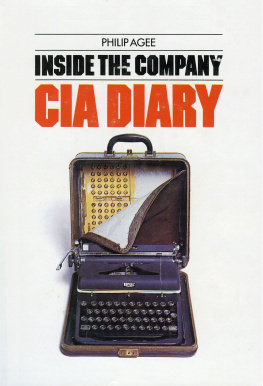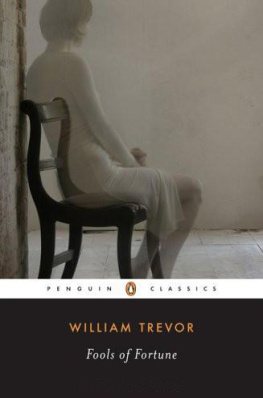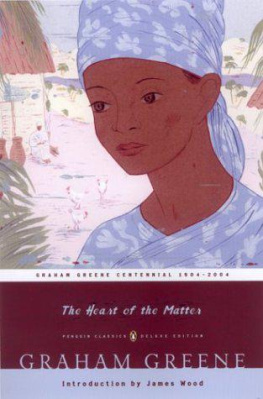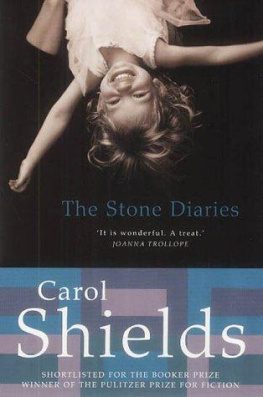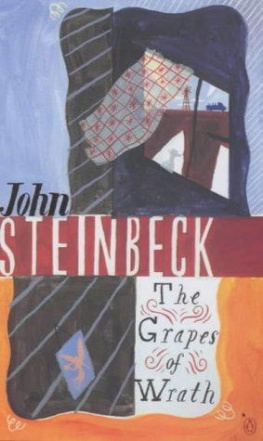James Agee - A Death in the Family (Penguin Classics)
Here you can read online James Agee - A Death in the Family (Penguin Classics) full text of the book (entire story) in english for free. Download pdf and epub, get meaning, cover and reviews about this ebook. year: 2009, publisher: Penguin Classics, genre: Detective and thriller. Description of the work, (preface) as well as reviews are available. Best literature library LitArk.com created for fans of good reading and offers a wide selection of genres:
Romance novel
Science fiction
Adventure
Detective
Science
History
Home and family
Prose
Art
Politics
Computer
Non-fiction
Religion
Business
Children
Humor
Choose a favorite category and find really read worthwhile books. Enjoy immersion in the world of imagination, feel the emotions of the characters or learn something new for yourself, make an fascinating discovery.
- Book:A Death in the Family (Penguin Classics)
- Author:
- Publisher:Penguin Classics
- Genre:
- Year:2009
- Rating:3 / 5
- Favourites:Add to favourites
- Your mark:
- 60
- 1
- 2
- 3
- 4
- 5
A Death in the Family (Penguin Classics): summary, description and annotation
We offer to read an annotation, description, summary or preface (depends on what the author of the book "A Death in the Family (Penguin Classics)" wrote himself). If you haven't found the necessary information about the book — write in the comments, we will try to find it.
A Death in the Family (Penguin Classics) — read online for free the complete book (whole text) full work
Below is the text of the book, divided by pages. System saving the place of the last page read, allows you to conveniently read the book "A Death in the Family (Penguin Classics)" online for free, without having to search again every time where you left off. Put a bookmark, and you can go to the page where you finished reading at any time.
Font size:
Interval:
Bookmark:
This Pulitzer Prize winning book has been hailed as a major novel of our time
The work of a writer whose power with English words can make you gasp.
Alfred Kasin, The New York Times
James Agee has reminded us of human weakness and human strength, and reminded us that human beings can be brave and kind and tender when fate deals its heavy blows. This story has nobility, a quality in human nature not often emphasized in contemporary writing.
San Francisco Call Bulletin
His descriptions of people, places and scenes, are not only accurate but deeply poetic and moving.
Chicago Sun Times
Such a novel as this belongs with things to be cherished always.
The Cleveland Press
James Agee
A DEATH
IN THE
FAMILY
Complete and Unabridged
AN AVON BOOK
AVON BOOKS
A division of
The Hearst Corporation
572 Madison Avenue
New York 22, N.Y.
Copyright 1938, 1956
by The James Agee Trust.
Chapter 8 and part of Chapter 13,
Copyright 1957,
by The New Yorker Magazine, Inc,
Copyright 1957,
by The James Agee Trust.
All rights reserved.
Published by arrangement with
McDowell, Obolensky, Inc.
Printed in the U.S.A.
Avon Edition
First printing, February, 1959
Eleventh printing, August, 1963
Acknowledgment is here made to
The Partisan Review, i.e. The Cambridge Review,
The New Yorker Magazine , and Harpers Bazaar ,
in which portions of this novel first appeared.
THE TRUSTEES
OF COLUMBIA UNIVERSITY
IN THE CITY OF NEW YORK
To all persons
to whom these presents may come
greeting
be it known that
JAMES AGEE
has been awarded
THE PULITZER PRIZE
IN LETTERS
FICTION
for
A DEATH IN THE FAMILY
in accordance with the provisions of the statutes of the University governing such award.
In witness whereof we have caused this certificate to be signed by the President of the University and our corporate seal to be hereto affixed in the City of New York on the fifth day of May in the year of our Lord one thousand nine hundred and fifty eight.
Grayson Kirk
PRESIDENT
A NOTE ON THIS BOOK
James Agee died suddenly May 16, 1955. This novel, upon which he had been working for many years, is presented here exactly as he wrote it. There has been no re-writing, and nothing has been eliminated except for a few cases of first-draft material which he later re-worked at greater length, and one section of seven-odd pages which the editors were unable satisfactorily to fit into the body of the novel.
The ending of A Death in the Family had been reached sometime before Agees death, and the only editorial problem involved the placing of several scenes outside the time span of the basic story. It was finally decided to print these in italics and to put them after Parts I and II. It seemed presumptuous to try to guess where he might have inserted them. This arrangement also obviated the necessity of the editors having to compose any transitional material. The short section Knoxville: Summer of 1915 , which serves as a sort of prologue, has been added. It was not a part of the manuscript which Agee left, but the editors would certainly have urged him to include it in the final draft.
How much polishing or re-writing he might have done is impossible to guess, for he was a tireless and painstaking writer. However, in the opinion of the editors and of the publisher, A Death in the Family is a near-perfect work of art. The title, like all the rest of the book, is James Agees own.
Contents
A Death
in the
Family
Knoxville: Summer 1915
We are talking now of summer evenings in Knoxville, Tennessee in the time that I lived there so successfully disguised to myself as a child. It was a little bit mixed sort of block, fairly solidly lower middle class, with one or two juts apiece on either side of that. The houses corresponded. middle-sized gracefully fretted wood houses built in the late nineties and early nineteen hundreds, with small front and side and more spacious back yards, and trees in the yards, and porches. These were soft-wooded trees, poplars, tulip trees, cottonwoods. There were fences around one or two of the houses, but mainly the yards ran into each other with only now and then a low hedge that wasnt doing very well. There were few good friends among the grown people, and they were not poor enough for the other sort of intimate acquaintance, but everyone nodded and spoke, and even might talk short times, trivially, and at the two extremes of the general or the particular, and ordinarily next-door neighbors talked quite a bit when they happened to run into each other, and never paid calls. The men were mostly small businessmen, one or two very modestly executives, one or two worked with their hands, most of them clerical, and most of them between thirty and forty-five.
But it is of these evenings, I speak.
Supper was at six and was over by half past. There was still daylight, shining softly and with a tarnish, like the lining of a shell, and the carbon lamps lifted at the corners were on in the light, and the locusts were started, and the fire flies were out, and a few frogs were flopping in the dewy grass, by the time the fathers and the children came out. The children ran out first hell bent and yelling those names by which they were known; then the fathers sank out leisurely in crossed suspenders, their collars removed and their necks looking tall and shy. The mothers stayed back in the kitchen washing and drying, putting things away, re-crossing their traceless footsteps like the lifetime journeys of bees, measuring out the dry cocoa for breakfast. When they came out they had taken off their aprons and their skirts were dampened and they sat in rockers on their porches quietly.
It is not of the games children play in the evening that I want to speak now, it is of a contemporaneous atmosphere that has little to do with them: that of the fathers of families, each in his space of lawn, his shirt fishlike pale in the unnatural light and his face nearly anonymous, hosing their lawns. The hoses were attached at spiggots that stood out of the brick foundations of the houses. The nozzles were variously set but usually so there was a long sweet stream of spray, the nozzle wet in the hand, the water trickling the right forearm and the peeled-back cuff, and the water whishing out a long loose and low-curved cone, and so gentle a sound. First an insane noise of violence in the nozzle, then the still irregular sound of adjustment, then the smoothing into steadiness and a pitch as accurately tuned to the size and style of stream as any violin. So many qualities of sound out of one hose: so many choral differences out of those several hoses that were in earshot. Out of any one hose, the almost dead silence of the release, and the short still arch of the separate big drops, silent as a held breath, and the only noise the flattering noise on leaves and the slapped grass at the fall of each big drop. That, and the intense hiss with the intense stream; that, and that same intensity not growing less but growing more quiet and delicate with the turn of the nozzle, up to that extreme tender whisper when the water was just a wide bell of film. Chiefly, though, the hoses were set much alike, in a compromise between distance and tenderness of spray, (and quite surely a sense of art behind this compromise, and a quiet deep joy, too real to recognize itself), and the sounds therefore were pitched much alike; pointed by the snorting start of a new hose; decorated by some man playful with the nozzle; left empty, like God by the sparrows fall, when any single one of them desists: and all, though near alike, of various pitch; and in this unison. These sweet pale streamings in the light lift out their pallors and their voices all together, mothers hushing their children, the hushing unnaturally prolonged, the men gentle and silent and each snail-like withdrawn into the quietude of what he singly is doing, the urination of huge children stood loosely military against an invisible wall, and gentle happy and peaceful, tasting the mean goodness of their living like the last of their suppers in their mouths; while the locusts carry on this noise of hoses on their much higher and sharper key. The noise of the locust is dry, and it seems not to be rasped or vibrated but urged from him as if through a small orifice by a breath that can never give out. Also there is never one locust but an illusion of at least a thousand. The noise of each locust is pitched in some classic locust range out of which none of them varies more than two full tones: and yet you seem to hear each locust discrete from all the rest, and there is a long, slow, pulse in their noise, like the scarcely defined arch of a long and high set bridge. They are all around in every tree, so that the noise seems to come from nowhere and everywhere at once, from the whole shell heaven, shivering in your flesh and teasing your eardrums, the boldest of all the sounds of night. And yet it is habitual to summer nights, and is of the great order of noises, like the noises of the sea and of the blood her precocious grandchild, which you realize you are hearing only when you catch yourself listening. Meantime from low in the dark, just outside the swaying horizons of the hoses, conveying always grass in the damp of dew and its strong green-black smear of smell, the regular yet spaced noises of the crickets, each a sweet cold silver noise three-noted, like the slipping each time of three matched links of a small chain.
Next pageFont size:
Interval:
Bookmark:
Similar books «A Death in the Family (Penguin Classics)»
Look at similar books to A Death in the Family (Penguin Classics). We have selected literature similar in name and meaning in the hope of providing readers with more options to find new, interesting, not yet read works.
Discussion, reviews of the book A Death in the Family (Penguin Classics) and just readers' own opinions. Leave your comments, write what you think about the work, its meaning or the main characters. Specify what exactly you liked and what you didn't like, and why you think so.

